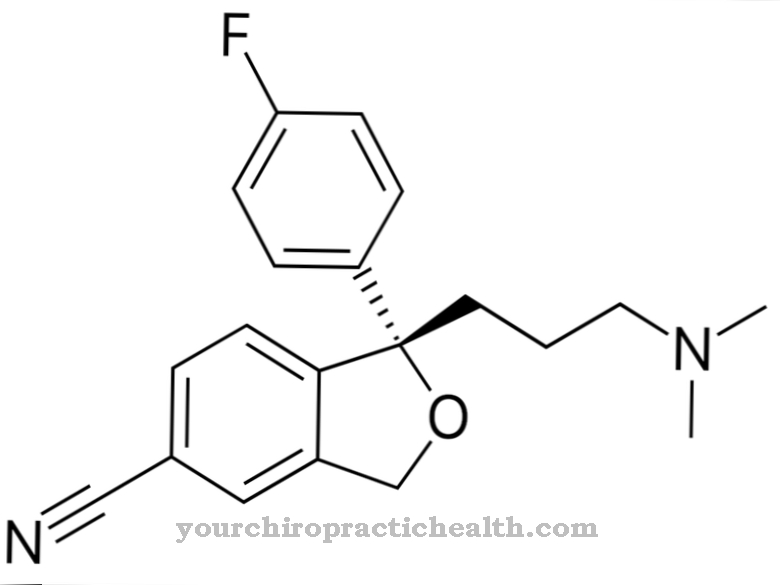Patient with Ganser's Syndrome answer simple questions and calls for action with misconduct. For a long time the syndrome was considered a simulated illness in prison, but is now recognized as a dissociative conversion disorder. Treatment turns out to be difficult and involves behavioral therapy and medication.
What is Ganser's Syndrome?

© loreanto - stock.adobe.com
Dissociative conversion disorders are transient psychosomatic disorders. Those affected suffer from disorders of the bodily functions that are temporally related to a psychologically stressful event. Ganser's syndrome is classified as dissociative conversion disorders. It is a rare disorder in psychiatry.
Those affected answer simple questions inconsistently or even incorrectly and thus give the impression of dementia. Incorrect courses of action also shape the clinical picture. The disorder was first described in 1897. The first person to describe it is the German psychiatrist S. J. M. Ganser, who gave the disease its name.
The first cases of Ganser's syndrome were observed within the prison system and were related to the desire for a declaration of insanity. In this context, the syndrome was initially thought to be an artificial disorder that merely simulated a mental illness. In the meantime, however, Ganser's syndrome is recognized as a real psychiatric disorder and can be found as such in the ICD-10.
causes
The causes of Ganser's syndrome have not yet been clarified. Since the syndrome was first observed in the penal system, the disease was long thought to be a deliberate attempt at deception with the aim of declaring insanity. Despite the recognition of the syndrome as an actual disease, psychiatrists and psychologists still consider the possible simulation character when making a diagnosis.
The distinction between a real illness and a consciously simulated illness is extremely difficult, especially when it comes to Ganser's syndrome. Sometimes organic damage to the brain can also lead to a similar clinical picture. A purely psychological Ganser syndrome is usually preceded by a significantly stressful event that has tremendously shaken the soul of the person concerned. This causal connection explains the classification of the syndrome as a dissociative conversion disorder.
You can find your medication here
➔ Medicines to calm down and strengthen nervesSymptoms, ailments & signs
Patients with Ganser's syndrome give incorrect answers to simple questions. When asked about the color of the sun, they answer, for example, with “green”. They answer the question about the current day with a season and calls to action are carried out incorrectly. There are no other cognitive limitations and behavioral problems.
In addition to the typical past answering, the first person to describe it, Ganser claims to have noticed a fluctuating clouding of consciousness, emotional disorders such as analgesia, tingling sensation or even paralysis and acoustic and visual pseudo-hallucinations in the patient.
Childish, foolish affects, depression, restless states, memory gaps and visual field restrictions can be present. In addition, echopraxis and pseudoepileptic seizures are typical symptoms. The acute symptoms usually only last for a short time and are not remembered later by the patient.
Those affected are often considered "stupid" by those around them. For this reason, academic, professional, and social failure is a common consequence. Social isolation can arise as a complication. Meanwhile, according to case reports, more and more children suffer from symptoms of the syndrome.
Diagnosis & course
Ganser's syndrome requires extensive diagnostics. A psychiatric or psychological assessment is usually not enough for a reliable diagnosis. Neurological examinations and imaging of the brain are necessary in order to rule out organic damage to the brain as the cause of the cognitive disorders.
If physical causes are excluded, a psychiatrist or psychologist must draw the line between a simulated illness. The differential diagnostic demarcation from clinical pictures such as schizophrenia is also necessary in the context of diagnostics. This task turns out to be a tightrope walk. The prognosis for patients with Ganser's syndrome is relatively poor because the phenomenon is difficult to treat.
Ganser's syndrome leads to serious psychological complaints and complications. These occur primarily in the social environment, as the patient is often excluded from social life and can no longer actively participate in it. This leads to depression and an aggressive mood in the patient. Disturbances of consciousness and concentration also occur.
Especially in children, Ganser's syndrome can lead to teasing and bullying and thus extremely reduce the quality of life. It is not uncommon for those affected to appear to outsiders as not intelligent, which is why there are more psychological complaints. Other behavioral problems also occur, and it is not uncommon for certain regions of the body to be paralyzed.
Treatment of Ganser's syndrome turns out to be very complicated and long-term. It does not always lead to success, so that the patient may have to spend his entire life with the symptoms. Certain wrong behaviors are treated in therapies. However, the development of the child is also restricted, so that symptoms can arise in adulthood. Life expectancy itself is not influenced by Ganser's syndrome.
Complications
Ganser's syndrome leads to serious psychological complaints and complications. These occur primarily in the social environment, as the patient is often excluded from social life and can no longer actively participate in it. This leads to depression and an aggressive mood in the patient.
Disturbances of consciousness and concentration also occur. Especially in children, Ganser's syndrome can lead to teasing and bullying and thus extremely reduce the quality of life. It is not uncommon for those affected to appear to outsiders as not intelligent, which is why there are more psychological complaints. Other behavioral problems also occur, and it is not uncommon for certain regions of the body to be paralyzed.
Treatment of Ganser's syndrome turns out to be very complicated and long-term. It does not always lead to success, so that the patient may have to spend his entire life with the symptoms. Certain wrong behaviors are treated in therapies. However, the development of the child is also restricted, so that symptoms can arise in adulthood. Life expectancy itself is not influenced by Ganser's syndrome.
When should you go to the doctor?
People who notice an inappropriate reaction to instructions and calls to action from other people or close relatives need medical help. If simple questions cannot be answered correctly despite the knowledge available, this is considered unusual and must be examined by a doctor. If the person concerned is noticed because of his behavior, since it is above his norm, it is advisable to initiate a check-up visit to a doctor.
If the person affected appears to be insane and mentally poor, a therapist should be consulted to clarify the abnormalities. If sufferers show multiple behaviors similar to those of dementia sufferers, there is cause for concern. Forgetfulness, disorientation and an unreliable incompetence in everyday situations should be examined and medically treated. Persistent or repeated cognitive impairment, memory impairment, and mood swings are indications that should be discussed with a doctor.
If there are changes in consciousness, sensory disturbances or inner restlessness, a doctor is required. In the event of hallucinations, symptoms of paralysis and sensory disturbances in the body, a doctor should be consulted. If the person concerned complains about limitations of the field of vision or if these are noticed by relatives, a doctor should be visited. If pseudoepileptic seizures occur repeatedly and the person concerned has no memories, a doctor should be consulted.
Doctors & therapists in your area
Treatment & Therapy
Ganser's syndrome is treated in psychological care. A causal treatment is sought, but causal therapy turns out to be difficult. A widely used option is cognitive behavioral therapy. Behavioral treatment steps are based on learning theory. Behavior caused by a disorder is understood by behavior therapy as learned and should be unlearned again in therapy.
The behavioral therapist wants to replace the patient's conspicuous ways of thinking and behaving with appropriate ways of thinking and behaving and to open up a new perspective on their own behavior for the person concerned. The reinforcement of desired and the elimination of undesirable or inappropriate behavior are central goals of any behavior therapy.
Patients with Ganser's syndrome understand questions and calls to action very well, but behave inappropriately despite having a basic understanding of what is being asked of them. This connection makes behavior therapy possible in the first place. If they did not understand the questions and requests in principle, their behavior in the situation could not be corrected.
In most cases, the causal treatment approach is combined with a symptomatic therapeutic approach. Those affected often show strong restlessness that stands in the way of behavior therapy. In order to reduce the patient's agitation, conservative drug treatment steps are usually followed.
The short-term administration of lorazepam has become common in this context. In order to resolve the disorder in the long term, the therapist must recognize the causal situations and stimuli for the wrongdoing. The patient is confronted with these stimuli until desensitization is achieved.
Outlook & forecast
The prognosis of Ganser's syndrome depends on the beginning of adequate treatment of the disease. In many cases the patient has no insight into the disease. This means that despite abnormalities and peculiarities of behavior, no doctor is consulted or therapy is rejected. In addition, the difficulty of the disease lies in the correct diagnosis. The existence of this mental disorder is often misunderstood for a long time.
If therapy is used, there is a good chance that the existing symptoms will be alleviated.Nevertheless, the treatment is usually very difficult and complex. The drop-out rate is high because the measures required are extensive and in many cases the patient is not convinced that the problems are due to their behavior. For him, the cause can be found in the environment or in the behavior of other people. Likewise, there is often a lack of sufficient cooperation on the part of the patient within the therapy.
Long-term treatment is required for Ganser's syndrome, which for most of those affected must take place over their entire life. The aim is not to be completely free from symptoms. The focus is on the gradual improvement of the quality of life and the reduction of interpersonal conflicts. Cognitive changes are necessary so that an improvement in the overall situation can take place. Relapses are not uncommon.
You can find your medication here
➔ Medicines to calm down and strengthen nervesprevention
Since the exact causes of Ganser's syndrome are presumably wide-ranging, the syndrome can hardly be fully prevented. A stable psyche can be a prophylaxis. Prophylactic psychotherapy can to a certain extent be described as a preventive measure.
Aftercare
In most cases, those affected with Ganser's syndrome have no special follow-up options available. The patient is dependent on a comprehensive treatment of this disease, whereby a complete cure cannot be guaranteed. However, if Ganser's syndrome is completely cured, it must be prevented from recurring.
The life expectancy of the patient is not reduced by this disease. Ganser's syndrome is usually treated by a psychologist or a therapist. In many cases, the support of family or friends is necessary and very helpful in order to speed up the healing process.
Likewise, outsiders usually have to point out the symptoms of this disease to those affected and induce them to seek therapy. It is not uncommon for Ganser's syndrome to be treated with medication. It is important to ensure that it is taken regularly, and the correct dose must be adjusted by a doctor.
In case of doubt, a doctor should always be consulted. The syndrome can also be treated in a special clinic. If Ganser's syndrome occurs again, it must be treated again by a doctor. Self-healing cannot occur.
You can do that yourself
The treatment of Ganser's syndrome usually proves to be difficult, so that the means of self-help are very limited. Pay attention to the regular and careful intake of medication prescribed by the doctor. Interactions with other drugs should also always be considered if additional drugs are taken.
In Ganser's syndrome, it is extremely important not to punish the patient for wrongdoing. Above all, friends and relatives have to be considerate of the symptoms of the syndrome and explain to the patient why their behavior represents misconduct. Also, different ways of thinking that could be wrong have to be corrected by outsiders.
As a rule, the treatment is carried out by confronting unpleasant stimuli and situations. This confrontation can also take place in your own home with people you trust, which may accelerate healing. However, these behavioral exercises should always be discussed with the treating doctor or therapist in order to avoid misconduct. If the person concerned appears restless, empathetic discussions with the closest and trusted people are very helpful.



.jpg)
.jpg)
.jpg)




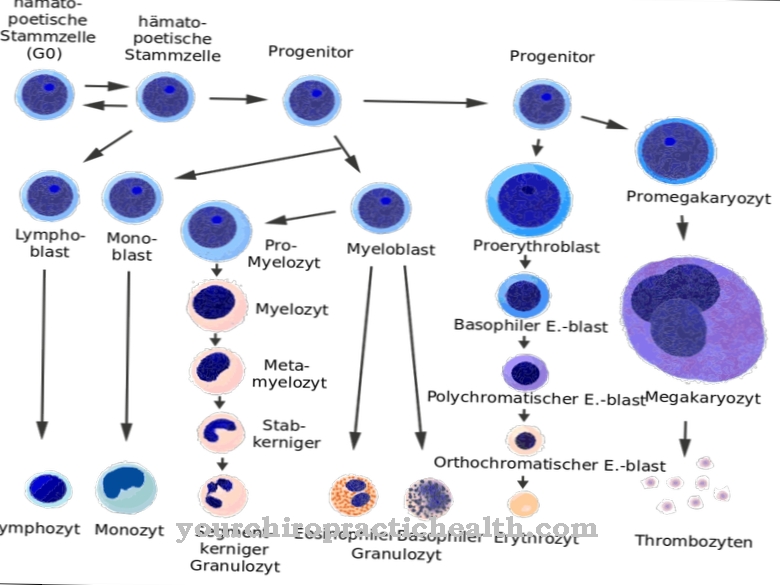


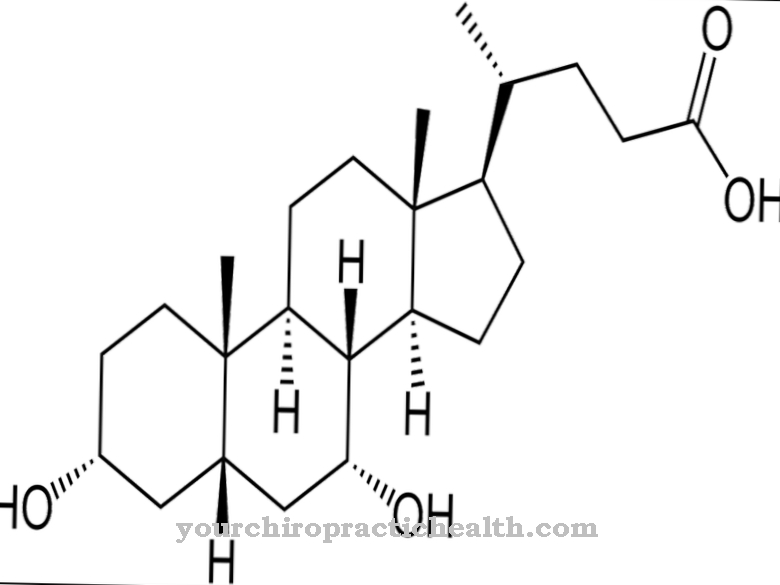
.jpg)





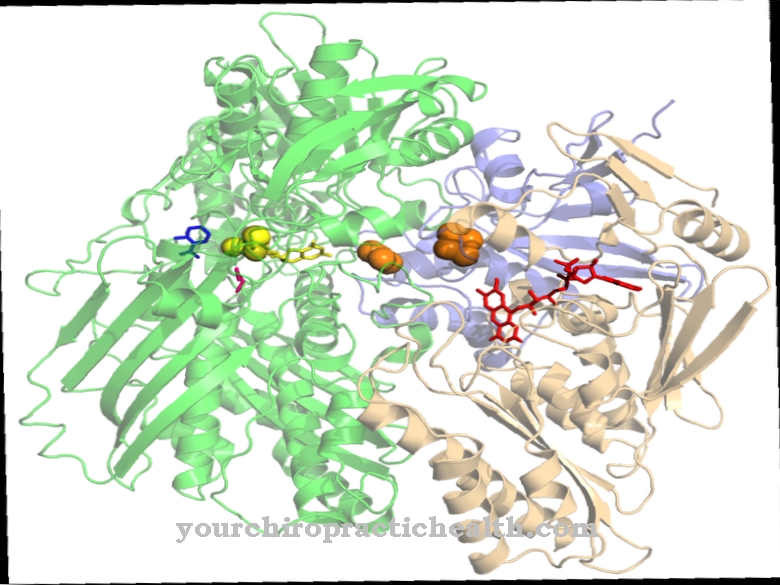

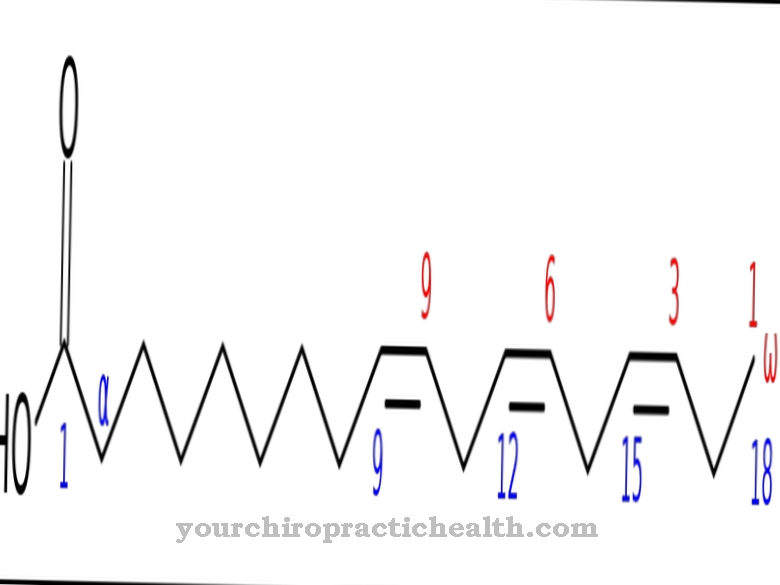

.jpg)

